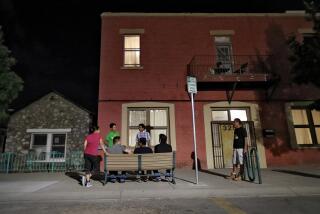SAN JUAN CAPISTRANO : Judge Rules Julian’s Benefits Were Legal
- Share via
A Superior Court judge in Santa Ana on Tuesday dismissed a taxpayer’s suit against the city of San Juan Capistrano and its city manager, Stephen B. Julian, which challenged Julian’s employment benefits.
The suit, brought by San Juan Capistrano attorney Carlos F. Negrete, charged that a $250,000 home loan made to Julian by the city, along with other non-salary benefits during the city manager’s 11-year tenure, were improper and wasteful.
However, Judge David C. Velasquez ruled that “it is not for this court to say whether the city received a good deal or a poor one out of the negotiations.”
The judge ordered Negrete to pay court costs and legal fees.
In his 14-page ruling, Velasquez found no evidence of illegal expenditures, waste, misuse of public funds or fraud. Both the housing loan and a subsequent loan agreement, he said, were “legal, valid and enforceable,” and Julian’s role in negotiating his employment agreements did not constitute a conflict of interest.
“It is a legitimate exercise of executive and legislative power to offer compensation to any employee, which is reasonably competitive with the private market,” the judge wrote. “The approval of Mr. Julian’s compensation package and any modifications to it were all done in open public meetings, after formal vote by the City Council, and the action entered into the minutes. Nothing more is required by law.”
Julian said he was “elated” by the ruling, which his attorney J. Eric Isken, called “excellent.”
“I believe the judge’s decision confirms what I’ve maintained all along,” Julian said. “I’ll be happy to get back to business.”
Negrete, who brought the suit after reading a series of articles about Julian’s compensation in The Times, said he found “no rational basis” for the judge’s ruling and said he would appeal.
In the suit, Negrete attacked the home loan, as well as a subsequent agreement to pay an outstanding balance on the home loan without additional interest. He also questioned non-salary provisions of four employment agreements that permitted Julian to borrow against or “cash out” accrued vacation, holiday, sick and annual leave.
More to Read
Sign up for Essential California
The most important California stories and recommendations in your inbox every morning.
You may occasionally receive promotional content from the Los Angeles Times.













